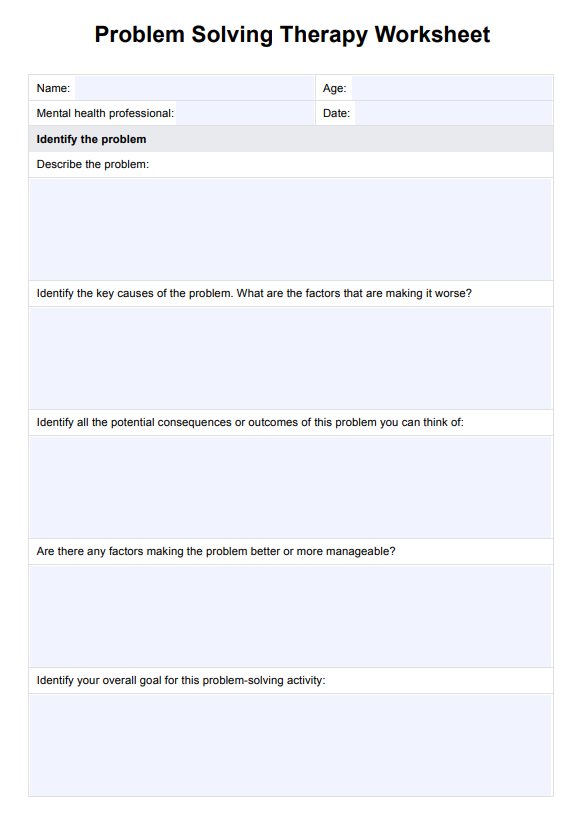Problem-solving therapy is a cognitive-behavioral approach to helping individuals cope with challenging life experiences. It alleviates the negative consequences or thoughts associated with challenges and fosters resilience by refining coping strategies into achievable problem-solving steps.

Problem Solving Therapy Worksheet
Unlock solutions with our Problem-Solving Therapy Worksheets guide. Empower your mind, enhance skills, and conquer challenges effortlessly!
Problem Solving Therapy Worksheet Template
Commonly asked questions
Problem-solving skills are crucial to recognizing and overcoming obstacles, and the problem-solving process is crucial in everyday functioning. Ineffective problem-solving skills not only delay the resolution of the problem but often exacerbate the emotional distress associated with it.
While all human beings experience significant challenges and stressors over their lifespans, some are less psychologically equipped to handle stress. Therapy and counseling helps to increase a sense of control, reduce worrying, provide cognitive tools to weather difficult periods, and generate rational solutions.
EHR and practice management software
Get started for free
*No credit card required
Free
$0/usd
Unlimited clients
Telehealth
1GB of storage
Client portal text
Automated billing and online payments











